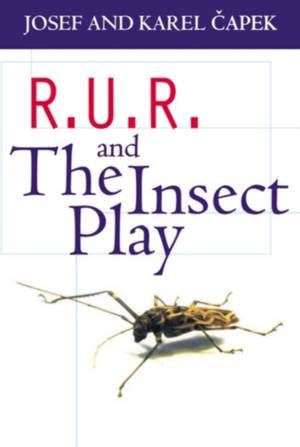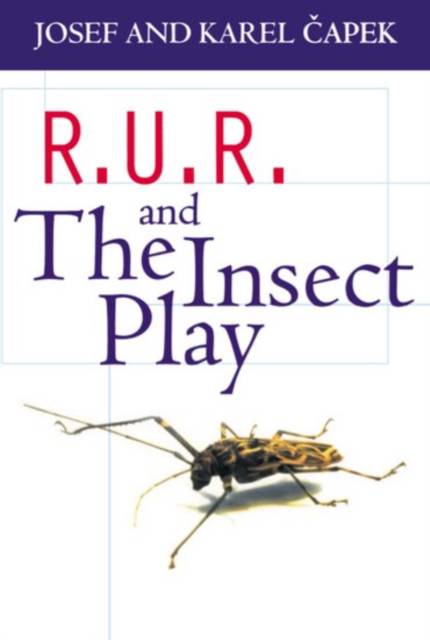
Door een staking bij bpost kan je online bestelling op dit moment iets langer onderweg zijn dan voorzien. Dringend iets nodig? Onze winkels ontvangen jou met open armen!
- Afhalen na 1 uur in een winkel met voorraad
- Gratis thuislevering in België vanaf € 30
- Ruim aanbod met 7 miljoen producten
Door een staking bij bpost kan je online bestelling op dit moment iets langer onderweg zijn dan voorzien. Dringend iets nodig? Onze winkels ontvangen jou met open armen!
- Afhalen na 1 uur in een winkel met voorraad
- Gratis thuislevering in België vanaf € 30
- Ruim aanbod met 7 miljoen producten
Zoeken
Omschrijving
Josef and Karel Capek were the best known literary figures of liberated Czechoslovakia after 1918. Josef won a considerable reputation as a painter of the Cubist school, later developing his own playful primitive style. He collaborated with his brother in composing sketches, stories, and plays, as well as writing two short novels of his own and critical essays in which he defended the art of the unconscious, of children, and of savages. Following Hitler's invasion of 1939, Josef Capek was sent to a German concentration camp. He died at Belsen in April 1945. Karel Capek became a journalist and for a time stage manager of the theatre in Vinohrady. Though a writer of novels, visionary romances, travel books, stories, and essays, Karel is best known for his plays. His last plays, written just before the entry of Hitler into Czechoslovakia, deal with the rise of dictatorship and the terrible consequences of war. Karel Capek died on Christmas day, 1938. After the success of R.U.R. (Rossums' Universal Robots, 1920) seen in London in 1923, the brothers collaborated in their best-known work, The Insect Play (1921). Both plays are satires depicting the horrors of a regimented technical world and the terrible end of the populace if they fail to rise against their oppressors. They reflect the world in which the Capeks lived and give a commentary on its grosser follies.
Specificaties
Betrokkenen
- Auteur(s):
- Uitgeverij:
Inhoud
- Aantal bladzijden:
- 188
- Taal:
- Engels
- Reeks:
Eigenschappen
- Productcode (EAN):
- 9780192810106
- Verschijningsdatum:
- 31/12/1961
- Uitvoering:
- Paperback
- Formaat:
- Trade paperback (VS)
- Afmetingen:
- 197 mm x 129 mm
- Gewicht:
- 158 g

Alleen bij Standaard Boekhandel
+ 54 punten op je klantenkaart van Standaard Boekhandel
Beoordelingen
We publiceren alleen reviews die voldoen aan de voorwaarden voor reviews. Bekijk onze voorwaarden voor reviews.











